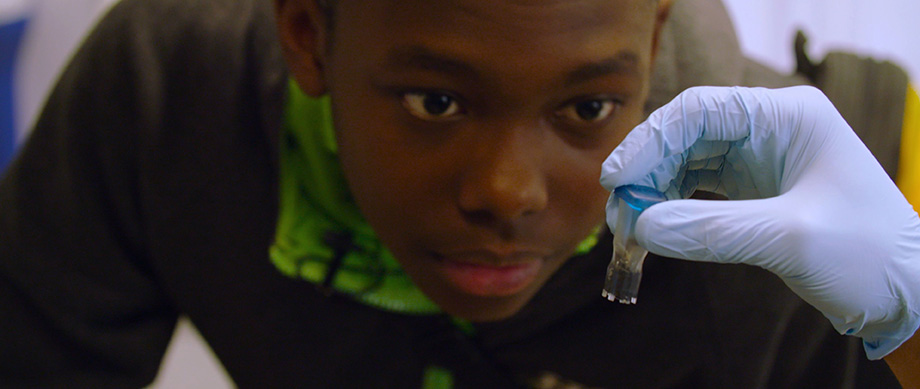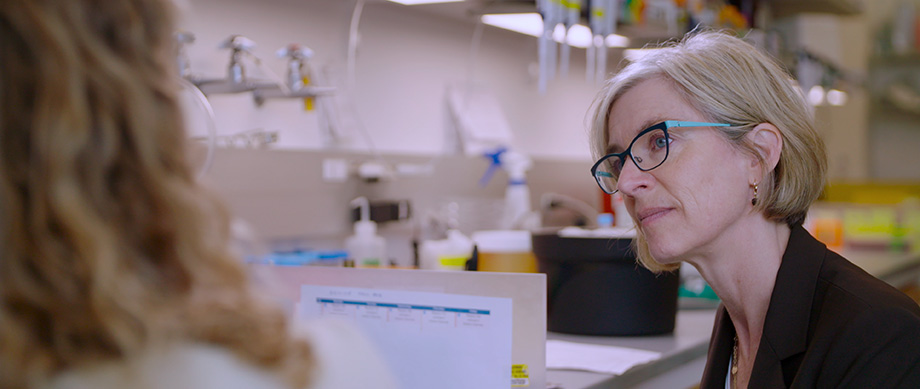Film, Live Panel to Explore the Power to Reshape Life

WOODS HOLE, Mass. — The Marine Biological Laboratory (MBL) invites the public to a free screening of Human Nature, the acclaimed documentary about CRISPR, the powerful technology for rewriting the code of life in humans and other species. Human Nature will be followed by a live panel discussion via webinar on Thursday, June 25.
Four years ago, a group of scientists and filmmakers gathered in Woods Hole to discuss how they could tell the story of CRISPR, a game-changer that allows scientists to edit DNA with precision and speed. Since its introduction in 2012, CRISPR has offered unprecedented control over the basic building blocks of life. It opens the door to curing diseases, controlling COVID-19, reshaping the biosphere, and even designing our own children.
Remarkably, some of the scientists at the Woods Hole meetings were at the forefront of discovering and developing CRISPR themselves. They would ultimately appear in the cast of Human Nature, which is “an experiment in science storytelling, the product of a first-of-its kind collaboration between scientists, journalists and filmmakers,” its producers state. “Human Nature is a provocative exploration of CRISPR’s far-reaching implications, through the eyes of the scientists who discovered it, the families it’s affecting, and the bioengineers who are testing its limits.”
 David Sanchez appears in the film as an early candidate for CRISPR-based therapy for sickle cell disease.
David Sanchez appears in the film as an early candidate for CRISPR-based therapy for sickle cell disease.Distinguished Scientist Ron Vale of Howard Hughes Medical Institute co-organized the Woods Hole meetings through The Wonder Collaborative, which co-produced the film.
“We wanted to be ahead of the game in presenting credible science and a credible story about CRISPR, as well as thinking about the implications of the technology,” says Vale of the impetus for developing the film.
Vale will moderate the June 25 panel discussion, which will update the audience on CRISPR’s far-ranging impact, from applications in medicine and agriculture to the social issues raised by having the power to engineer our own species and those around us.
Registrants are encouraged to submit questions for the panel to address.
Homepage image: The panelists for the June 25 discussion, "CRISPR 2.0: Where are We Now and Where are We Headed?" include, from left, Ron Vale, HHMI; Kevin Doxzen, Innovative Genomics Institute; Nipam Patel, Marine Biological Laboratory; and Laurie Zoloth, University of Chicago.
—###—
The Marine Biological Laboratory (MBL) is dedicated to scientific discovery – exploring fundamental biology, understanding marine biodiversity and the environment, and informing the human condition through research and education. Founded in Woods Hole, Massachusetts in 1888, the MBL is a private, nonprofit institution and an affiliate of the University of Chicago.
